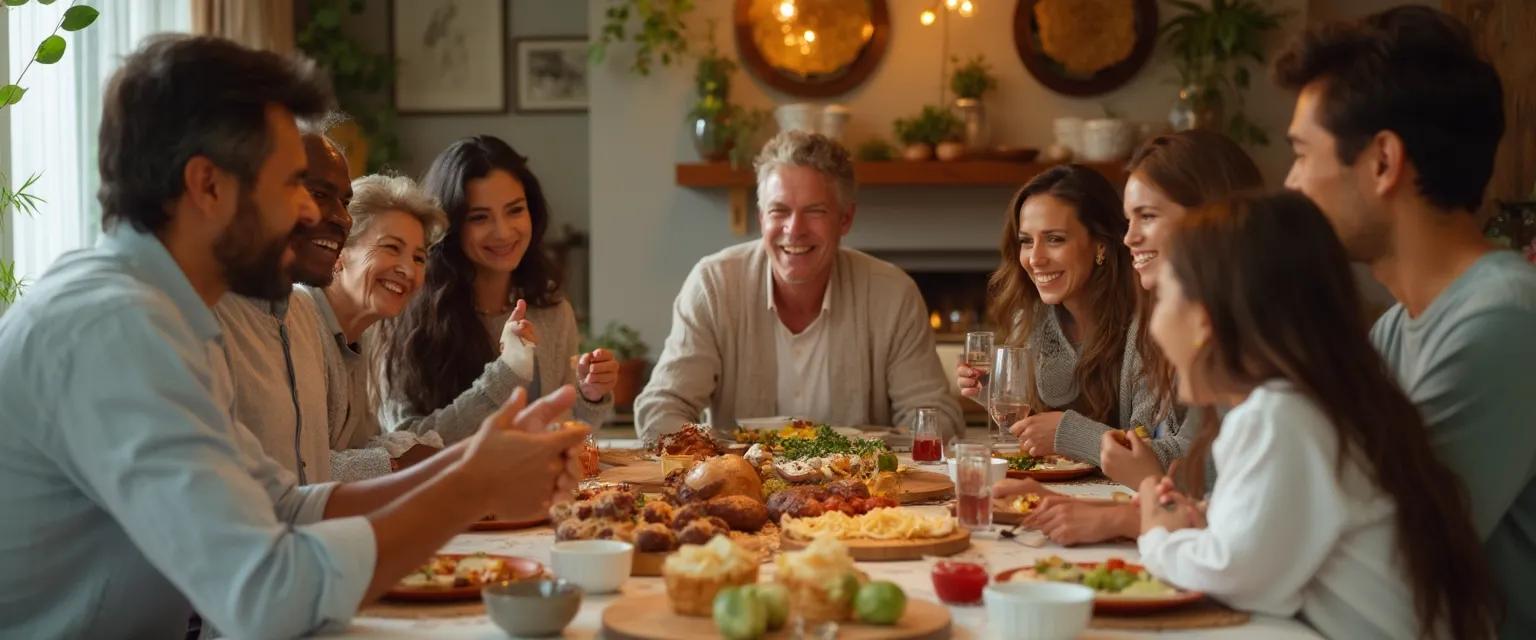7 Powerful Ways to Build Confidence in Cultural Celebrations with Family
Ever felt that flutter of excitement mixed with a knot of anxiety when attending a family cultural celebration? You're not alone. Finding confidence in cultural celebrations often means navigating a complex emotional landscape where pride in your heritage meets the pressure to participate "correctly." Whether it's forgetting ceremonial steps or worrying about mispronouncing traditional phrases, these moments can trigger both connection and discomfort.
Building confidence in cultural celebrations isn't just about memorizing customs—it's about developing a personal relationship with your heritage that feels authentic to you. Many of us struggle with balancing respect for tradition while managing the social anxiety that can arise during these meaningful gatherings. The good news? There are practical confidence-building techniques that can transform these experiences from stress-inducing to soul-nourishing.
The following seven strategies will help you embrace your cultural identity while navigating family gatherings with greater ease and authenticity—making your next celebration an opportunity for genuine connection rather than anxiety.
Understanding Your Cultural Celebration Confidence Barriers
Before developing confidence in cultural celebrations, it's important to identify what specifically triggers your anxiety. Many people experience what psychologists call "cultural identity anxiety"—discomfort arising from uncertainties about how to authentically express their heritage.
Common barriers include perfectionism ("Am I doing this right?"), generational gaps ("My elders expect me to know more"), and the "cultural impostor syndrome" that makes you question your authenticity. Research shows that acknowledging these feelings actually diminishes their power, creating space for genuine engagement.
The psychology behind cultural celebration anxiety often stems from our deep need for belonging. When we worry about performing traditions incorrectly, we're really concerned about rejection from our cultural community. Understanding this emotional foundation helps transform anxiety into an opportunity for growth.
Another significant factor is the pressure of cultural expectations from older generations. Many elders had different experiences maintaining cultural practices, often with greater immersion and fewer competing influences. Recognizing this gap helps develop healthy boundaries while still honoring their perspective.
3 Immediate Confidence Boosters for Cultural Celebrations
Ready to transform your experience at your next cultural gathering? These practical strategies build confidence in cultural celebrations without overwhelming preparation:
- The Preparation Sweet Spot: Research just one or two elements of the celebration that interest you most, rather than trying to master everything. This focused approach prevents information overload while giving you confident conversation points.
- The Curiosity Approach: Position yourself as an interested learner rather than an expert. Asking thoughtful questions about traditions shows respect while removing the pressure to know everything already. Most elders appreciate genuine interest over perfect performance.
- The Buddy System: Connect with a relative or friend who can be your cultural celebration ally. Having someone to navigate the experience with you reduces isolation and provides emotional support during moments of uncertainty.
These techniques work because they address both the practical and emotional aspects of cultural celebration anxiety. By taking small, manageable steps, you build confidence through positive experiences rather than perfection.
Remember that authentic participation means finding your personal connection to traditions, not just mimicking others. This authentic engagement creates deeper meaning and naturally enhances your confidence in cultural celebrations.
Building Lasting Confidence in Cultural Celebrations: Your Heritage Journey
Developing sustainable confidence in cultural celebrations requires moving beyond single-event strategies to creating a personal heritage journey. This ongoing relationship with your culture transforms occasional participation into a meaningful part of your identity.
Start by identifying which aspects of your heritage resonate most deeply with you. Perhaps it's the food traditions, the music, the values, or the stories. By connecting with elements that naturally interest you, cultural practices become less about performance and more about personal meaning.
Next, embrace the concept of cultural evolution. All living traditions change over time, adapting to new circumstances while preserving core values. This perspective relieves the pressure of "perfect authenticity" and acknowledges your role in your culture's continuing story.
Finally, practice self-compassion during this process. Cultural identity development isn't linear—it's a lifelong journey with moments of both connection and confusion. Each celebration becomes an opportunity to deepen your relationship with your heritage at your own pace.
The most powerful confidence in cultural celebrations comes when you shift from viewing traditions as external obligations to seeing them as expressions of who you are. This authentic connection not only eases anxiety but transforms cultural gatherings into genuinely enriching experiences that contribute to your well-being.




